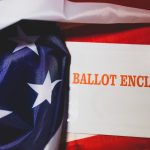The Second Circuit Court of Appeals just handed former Trump lawyer Michael Cohen a decisive defeat that would make even the most seasoned political gambler place their bets firmly against him. The court dismissed Cohen’s attempts to revive his claims against Donald Trump, deeming his allegations of presidential misuse as nothing more than an elaborate plea for attention. While squawking about a tell-all book, Cohen’s legal aspirations went up in smoke, leaving him with little more than sour grapes.
Cohen’s legal muddle revolved around the Bivens doctrine, a federal legal precedent that has barely eked out a few extensions since its birth in 1971. A three-judge panel made it abundantly clear that Cohen’s quest for damages was a flimsy attempt to wrangle out political revenge. They argued that his case introduced entirely new players—from a former President to federal probation officers—making it ill-suited for any such expansion of the Bivens doctrine. In layman’s terms, it seems Cohen’s grievances were too politically charged and lacked merit to produce any judicial sympathy.
Supreme Court rejects lawyer Michael Cohen lawsuit against Trump over alleged retaliation.
This yet another failed attempt to defame Trump no doubt by the deep state. pic.twitter.com/b9wgpqKPnN
— The Patriots Prayer Network (@ThePatriotsPray) October 21, 2024
The backdrop to this unfolding drama is the so-called “fixer” slinking back into the spotlight as he was relegated to home confinement during COVID-19. After serving time for dubious activities like campaign finance violations and tax fraud, he thought he could pursue a book deal while cooped up at home. But surprise, surprise—when Cohen refused to play nice regarding an agreement that limited his media engagements, the feds swooped in and sent him back to prison faster than one could say “First Amendment.” Sixteen days in solitary confinement later, Cohen emerged with a chip on his shoulder and a half-baked narrative of being silenced.
Interestingly, Cohen’s emergency response—a habeas corpus petition—landed him back under home confinement, where he mastered the art of playing the victim. Despite a lower court hinting at the government’s actions having a “retaliatory” feel, that hardly changed the Second Circuit’s perspective on the issue. It was a classic case of “you can’t play the victim card when it’s clearly a wild gamble.”
In a final twist, the Supreme Court opted not to entertain Cohen’s melodrama, leaving the Second Circuit’s verdict standing tall. The court concluded that Cohen’s successful habeas corpus petition offered sufficient redress for his alleged grievances, ultimately revealing the emptiness of his claims for damages against Trump and other officials. This sends a resounding message that courts don’t easily embrace politically charged narratives meant to stir up the pot, especially from someone like Cohen with a track record as a disgruntled ex-associate.
For Michael Cohen, it looks like this saga has officially reached its end, and all his grandiose plans of holding Trump accountable have fizzled out like a cheap firework. One can only imagine how the disgraced attorney will fill his days now that the judicial system has knocked him down a peg—or ten. Perhaps it’s time for him to come up with a new plan, maybe one less focused on litigation and a tad more on personal accountability.




